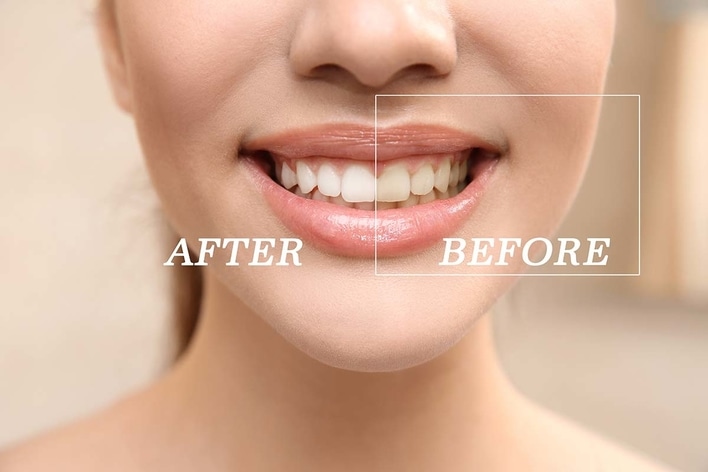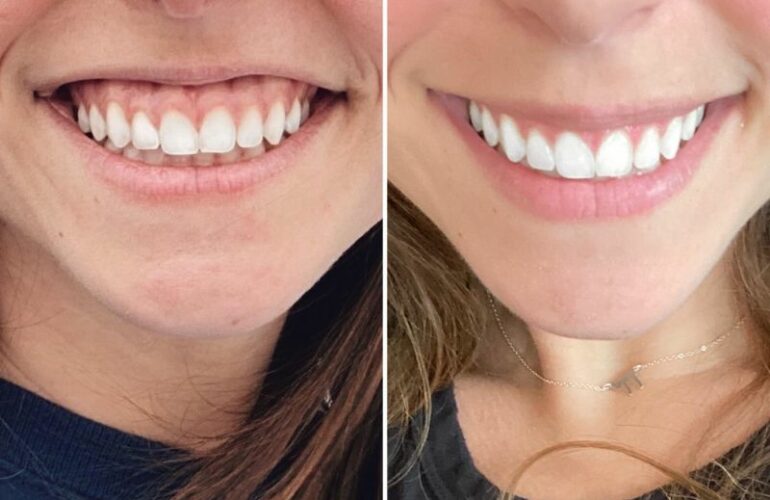Do Veneers Hurt After Procedure? Veneers are a relatively new treatment for tooth discoloration and dental problems. A veneer is an artificial covering, usually made of porcelain or resin, which improves the appearance of your teeth. Veneers have been used since the 1970s but they’ve become more popular in recent years as people learn about their benefits.
Why Do People Get Veneers?
The main reason people get veneers is to make their teeth look better. After veneers are applied, most teeth will be lighter in color and straighter. Many veneers are also bonded with the surface of the natural tooth.
How Do Veneers Work?
Veneers are usually applied directly over the top of your existing teeth so you can go back to eating and chewing right away. The dentist will take an impression of your teeth to create a mold, which is used to create custom-fitted veneer(s) for you. Unlike crown
Who Can Get Veneers?
Almost anyone who is interested in fixing tooth discoloration or dental problems like crooked teeth can get veneers as a treatment option. People with healthy teeth and gums do not need to remove decay before getting veneers. However, they may need to wait until cavities heal if they’ve had them fixed recently.
What Happens During Treatment?
Along with looking at your teeth and examing the jaw, we’ll take an impression of your mouth and use it to custom-fit your veneers. Next, the dentist will probably create a little space between your teeth to accommodate the veneer. This is called “veneering space” or “veneering gap” and it makes the veneer look more natural on your teeth.
The dentist will then take an impression of your mouth to make the veneer. The impression is sent to our dental lab. Once you’re ready, your veneers will be finished and carefully applied by the dentist or team member to best suit your smile.

Procedure for Getting Porcelain Veneers
The procedure for getting cosmetic veneers is relatively simple. First, your dentist will create an exact model of your teeth using a mold or impressions. The dentist will then trim the outer edges of the model to create the shape and size appropriate for your mouth. Next, your dentist will attach a temporary veneers to the model to help you visualize what the final result will be.
After this process is completed, they will remove any traces of tooth decay in preparation for placing veneer material on top of it. Your dentist may need to fill any empty spaces created by discoloration with cosmetic fillers before they are able to place the veneer material on top of it. You may also need to have cosmetic crowns put on your teeth to conceal cosmetic permanent veneers.
Recovery Instructions:
It’s important to follow your dental practitioner’s instructions carefully while recovering from veneer dental work. If you’re taking dental anesthesia, take it before arriving home after the procedure to aid in recovery. Avoid smoking for several days because nicotine slows healing and increases bleeding during recovery. Any dental splints attached to your mouth must be handled with care and kept clean to avoid permanent damage. You may need to restrict your diet for a few days after receiving veneers and you’ll also want to keep your mouth and lips moist with lip balm during this time.
So, Do Veneers Hurt After procedure?
Generally, dental veneer procedures including dental anesthesia do not Hurt orcause any pain. You may feel some discomfort or sensitivity after dental veneers process. these sensations should subside in a few days. If they do not, let your dental practitioner know so that you can explore other options for recovery.
Some discomfort is natural following dental veneer procedures. However, if you experience more pain or discomfort than expected, check in with your dentist right away. You may need to explore other options for treating the problem.
Do Veneers Cause Sensitive Teeth?
Yes, dental veneers may cause tooth sensitivity following placement. However, this tooth sensitivity should subside within a few days of the procedure. In the meantime, you can follow these tooth sensitivity remedies to provide relief:
- Chew gum or suck on hard candy for quick tooth pain relief from tooth sensitivity.
- Soothe tooth sensitivity with a toothpaste for sensitive teeth.
- Take acetaminophen as directed by your dentist.
If you continue to experience tooth pain and tooth sensitivity after completing these tooth sensitivity remedies, contact your dental practitioner immediately to see if they can help relieve any discomfort associated with tooth veneers.

Are You Considering a Cosmetic Dentistry Procedure?
If you’re considering cosmetic dentist and dental work, then consider having porcelain veneers applied. Veneers can be used to achieve the best smile makeover and increase your smile confidence.
Contact Omni Dental today to see if veneers can help you achieve the smile of your dreams.






